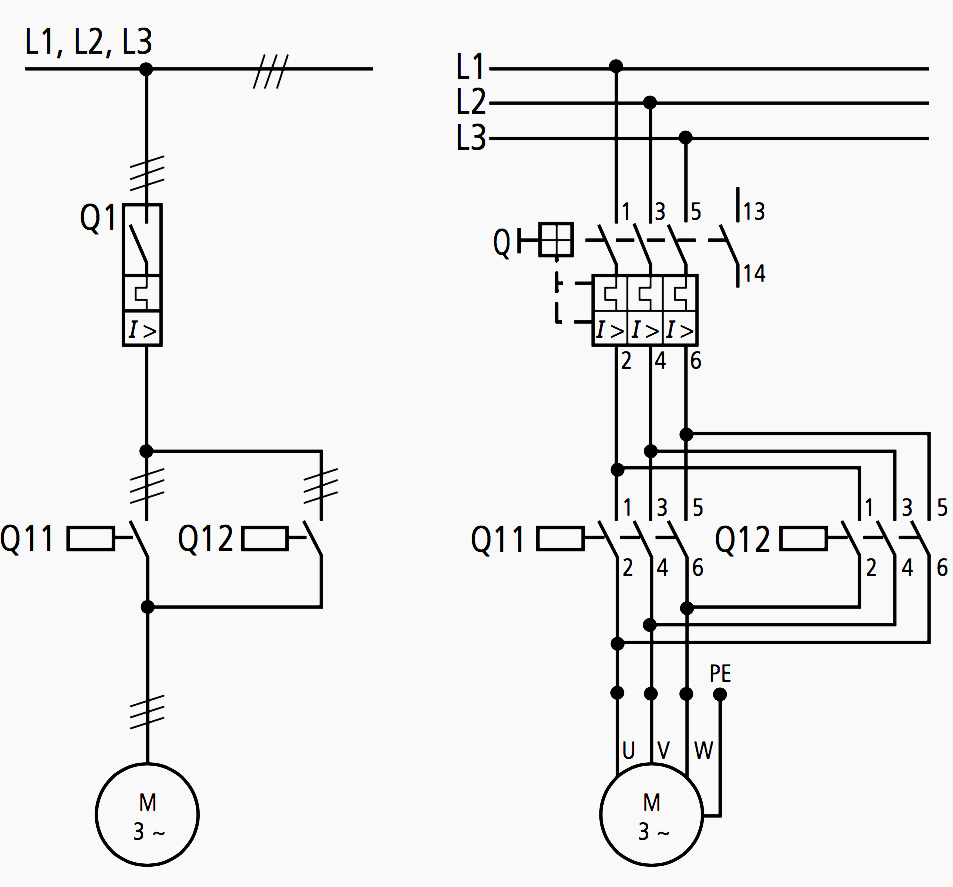
All about wiring of electric motors EEP
Motor wiring diagrams. Wiring diagrams show the conductive connections between electrical apparatus. They show the internal and/or external connections but, in general, do not give any information on the mode of operation. Instead of wiring diagrams, wiring tables can also be used. Unit wiring diagram - Representation of all the connections.

480V Motor Wiring Diagram
Motor contactor (or "starter") coils are typically designated by the letter "M" in ladder logic diagrams. Continuous motor operation with a momentary "start" switch is possible if a normally-open "seal-in" contact from the contactor is connected in parallel with the start switch so that once the contactor is energized it maintains power to itself and keeps itself "latched" on.
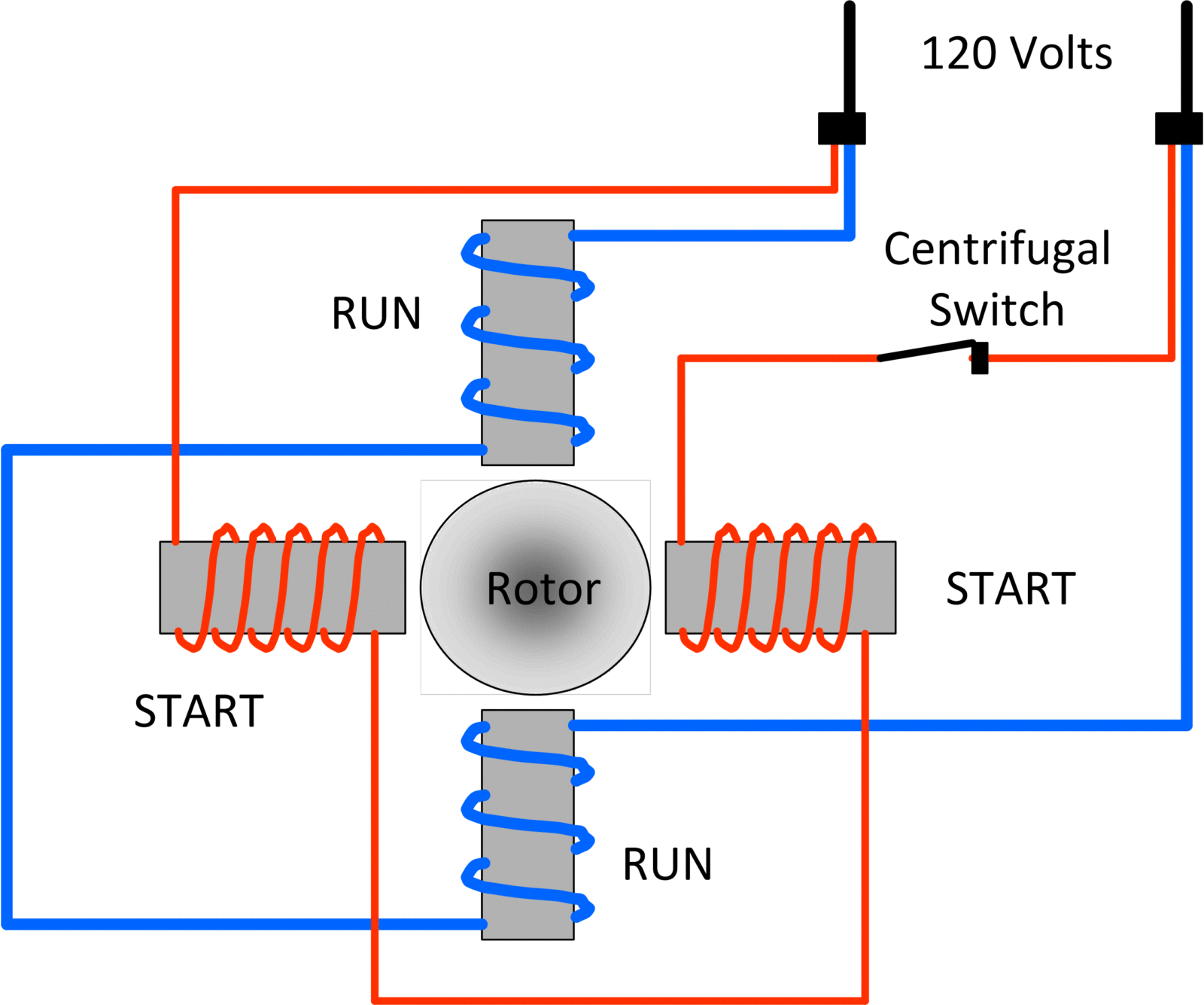
4 Wire Ac Motor Wiring Diagram
Search hundreds of online and print manuals and get the right one from Haynes. Search hundreds of online and print manuals and get expert repair guidance from Haynes.

Motor Wiring Diagram Single Phase Eneco
The diagram shows a simple motor using direct current (dc). Fleming's left-hand rule can be used to explain why the coil turns Starting from the position shown in the diagram of the dc.

Diagram Motor Control Wiring Buy bestperformance
How Electric Motor Works - 3 phase induction motor AC alternating current. 🎁 Sign up for a Free Trial at ️ https://greatcourses.thld.co/engineeringmindsetj.

Wiring Diagram For 3/4 Hp 120volt Reverseable Motor
In general, an electric motor consists of a stator, a rotor, winding, bearings, and casing. The motor rotates due to the force of attraction or repulsion between the stator or rotor fields. This article provides you an overview of the parts of a motor. Parts of a motor The following are the typical parts of a motor Stator Rotor Commutator
Motor Forward Reverse Wiring Diagram
The schematic diagram of an electric motor typically includes components such as a rotor, stator, commutator, brushes, and a power supply. These components work together to generate rotational motion. The rotor is the rotating part of the motor, while the stator is the stationary part.
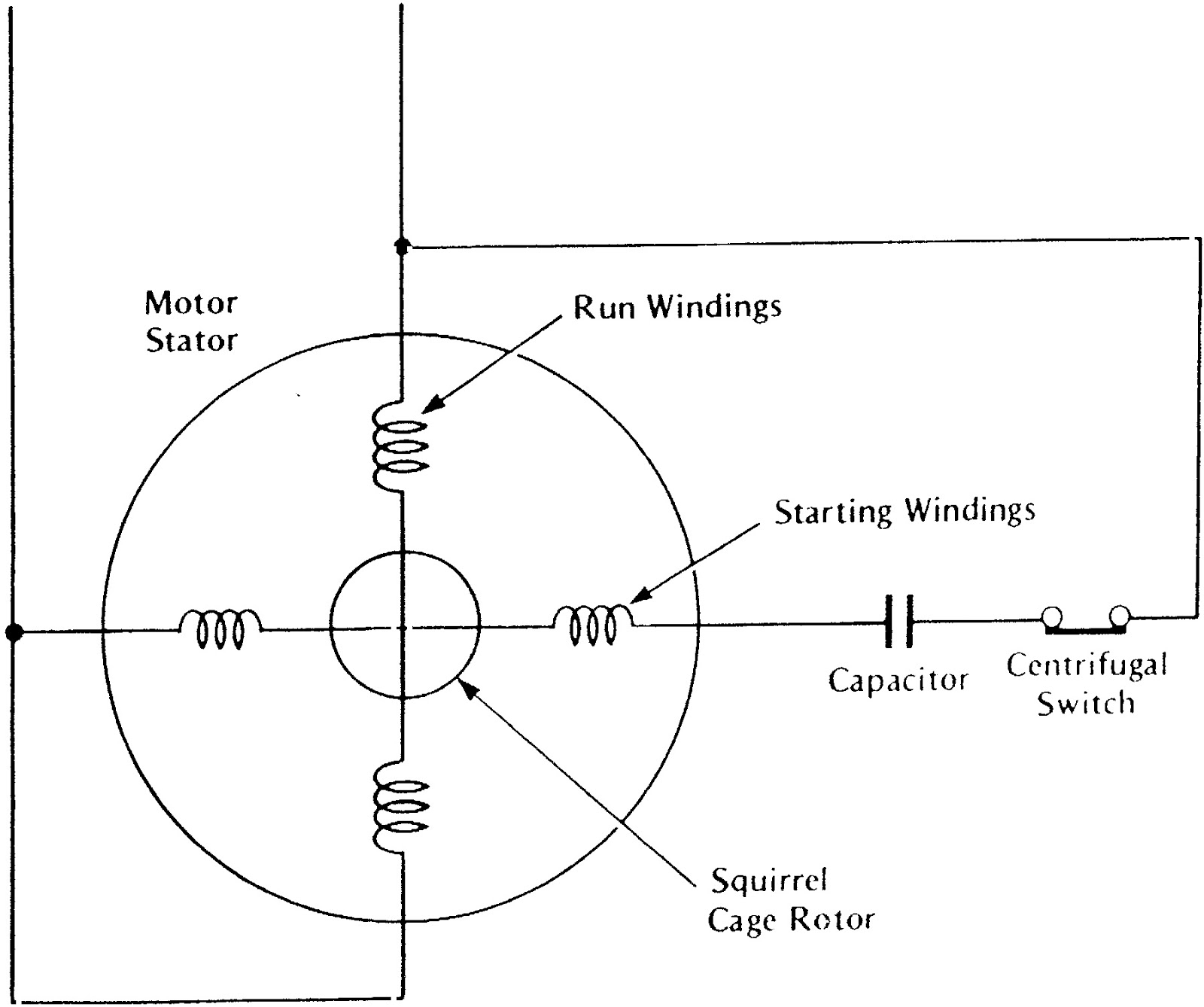
1 Phase Motor Wiring Diagram Artsist
The basic idea of an electric motor is really simple: you put electricity into it at one end and an axle (metal rod) rotates at the other end giving you the power to drive a machine of some kind. How does this work in practice? Exactly how do your convert electricity into movement?
Course Motor1 An Introduction to Electrical Motors Basics
Electric motors and generators. Electric motors, generators, alternators and loudspeakers are explained using animations and schematics. This is a resource page from Physclips, a multi-level multimedia introduction to physics ( download the animations on this page ). Schematics and operation of different types of motor. DC motors.

3 Phase Motor Wiring Diagram Easy Wiring
HowStuffWorks To understand how an electric motor works, the key is to understand how the electromagnet works. (See How Electromagnets Work for complete details.) An electromagnet is the basis of an electric motor. Say that you created a simple electromagnet by wrapping 100 loops of wire around a nail and connecting it to a battery.
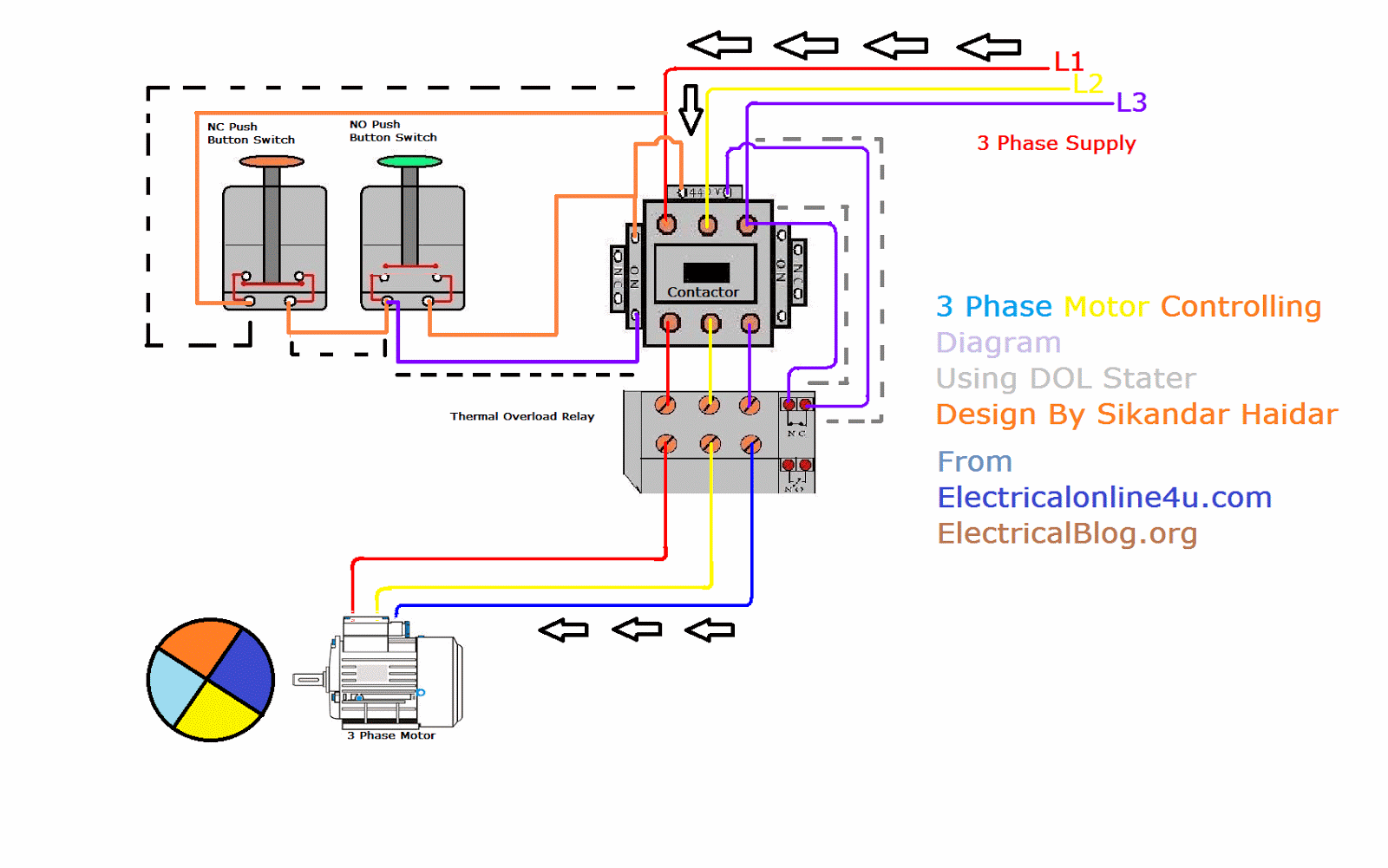
Direct Online Starter Animation Diagrams Electrical Online 4u
Universal Electric Motor Wiring Diagram. A Universal Electric Motor is designed to operate on alternating or direct currents (AC/DC). It is a series wound motor. It is provided with a field winding on the stator, connected in series with a commutating winding on the rotor.

Labelled Diagram Of Electric Motor Nest Thermostat E Wiring 3 Wire To 4
Diagram & Working - ElectricalWorkbook What is an Electric Motor? Diagram & Working In this topic, you study Electric Motor - Diagram & Working. An electric motor is a machine which converts electrical enegy into mechanical energy and so its function is exactly the reverse of that of a generator.
Forward Reverse Motor Control Diagram For 3 Phase Motor
2.3 Terminal markings for electric motors 21 3. Starting and switching motors 23 3.1 Selection criteria overview 23 3.2 Selecting the right contactor for an application 24 3.3 Selecting the right overload for an application 24 3.4 Characteristic features of the commonly used starting methods for squirrel-cage induction motors 25 4. Diagram types 26

2 Speed Motor Wiring Diagram Sustainablened
The first practical electric motor was invented by Thomas Davenport in 1834. This direct current (DC) motor utilized a stationary electromagnet as its stator to create a stationary magnetic field. The rotor, the motor's moving component, was also an electromagnet powered by current, transferred via a commutator and brushes.
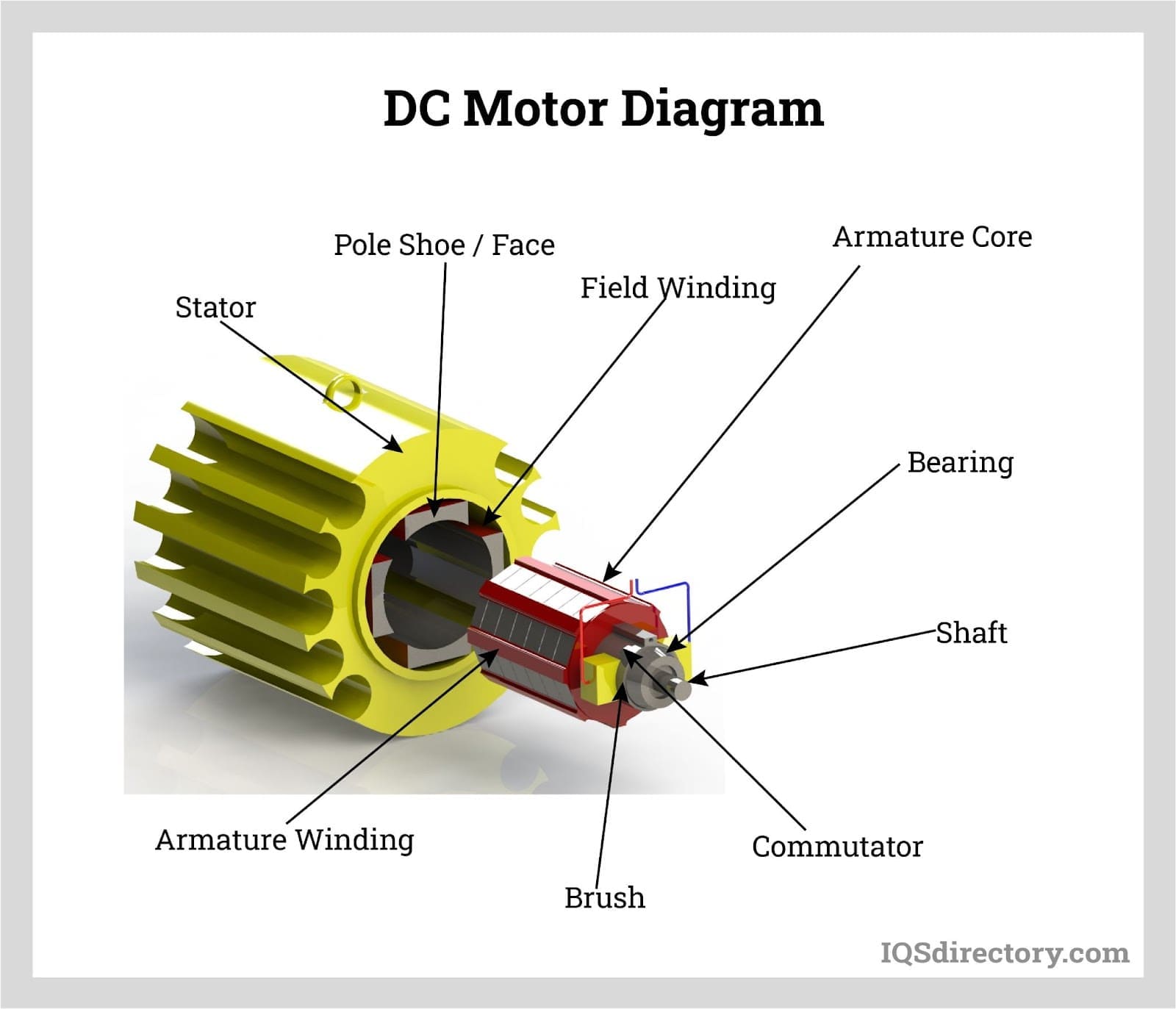
What Energy Transformation Takes Place In A Simple Electric Motor
An electric motor is an electrical machine that converts electrical energy into mechanical energy. Most electric motors operate through the interaction between the motor's magnetic field and electric current in a wire winding to generate force in the form of torque applied on the motor's shaft.

3 phase motor connection motor control circuit electrician training
DC motor that combines the series and the shunt motors. theory regarding the flow of flows from positive to negative. method of braking an AC motor (DC) is applied to the stationary after the AC voltage is removed. motor connection arrangement wired end to end to form a completely. motor made for two voltages.